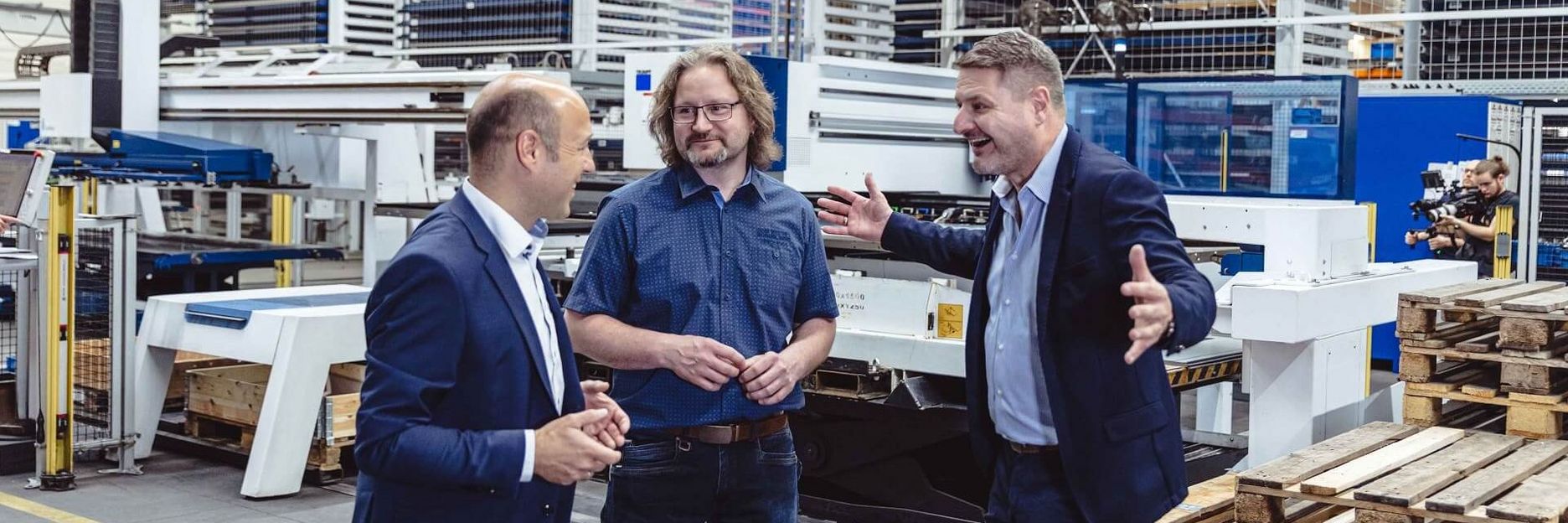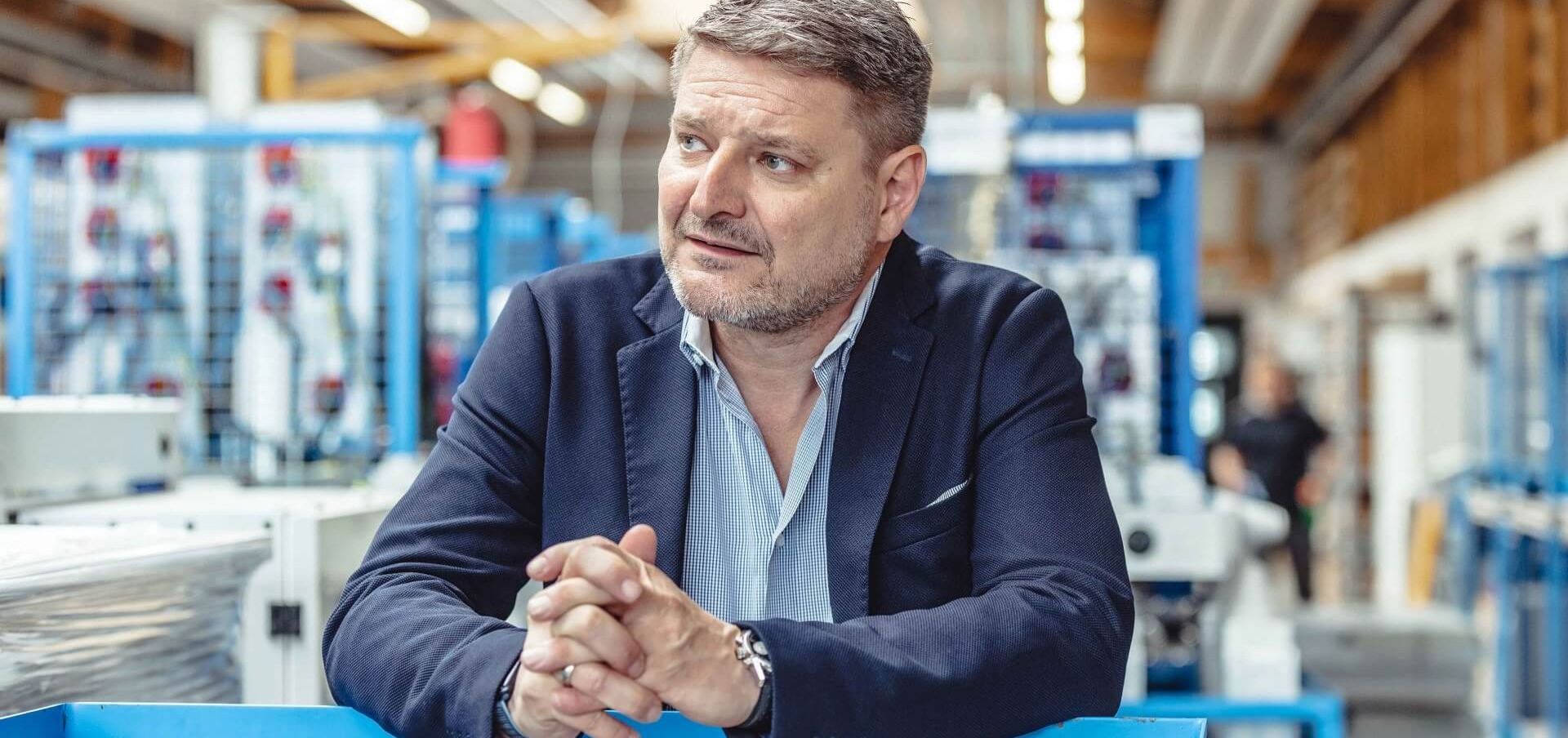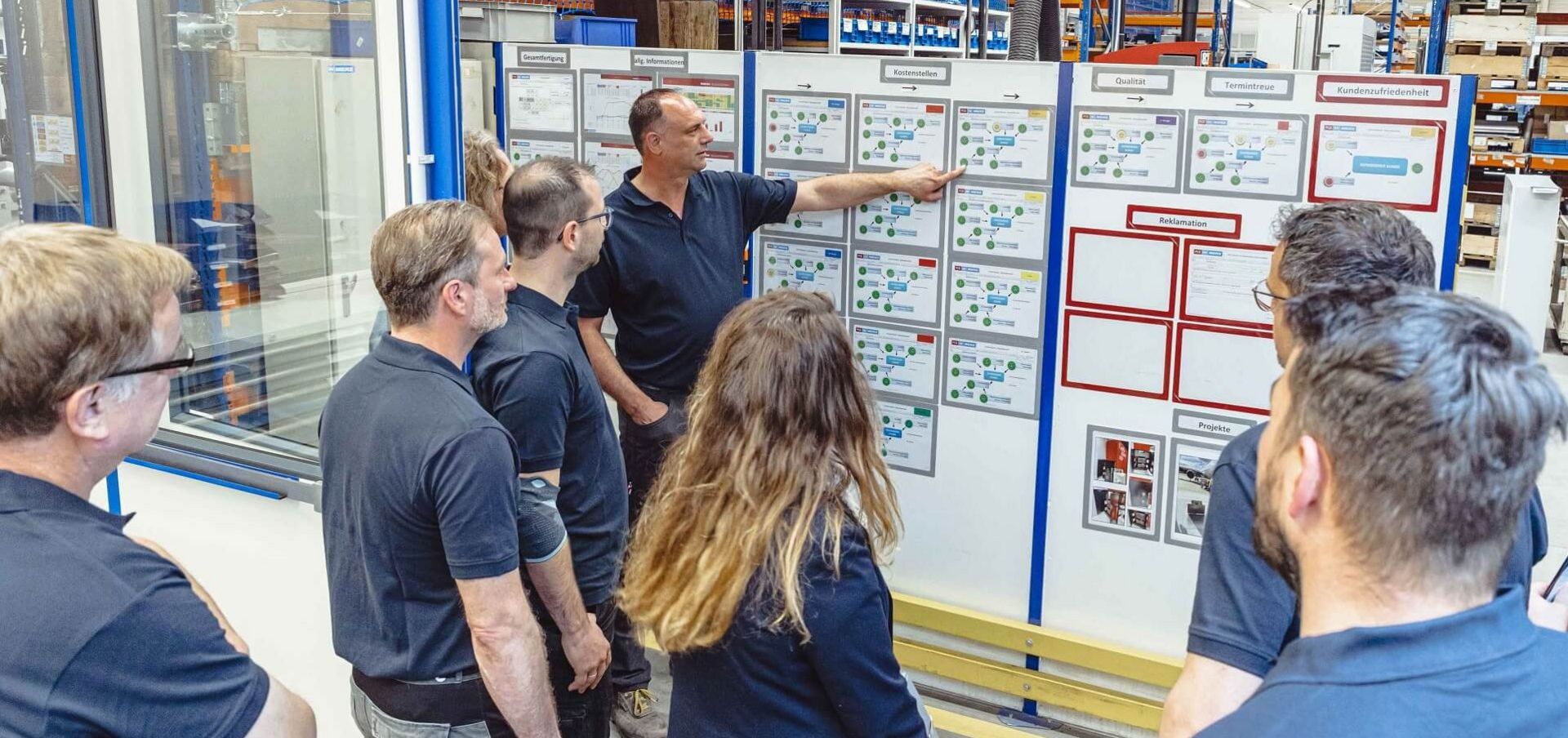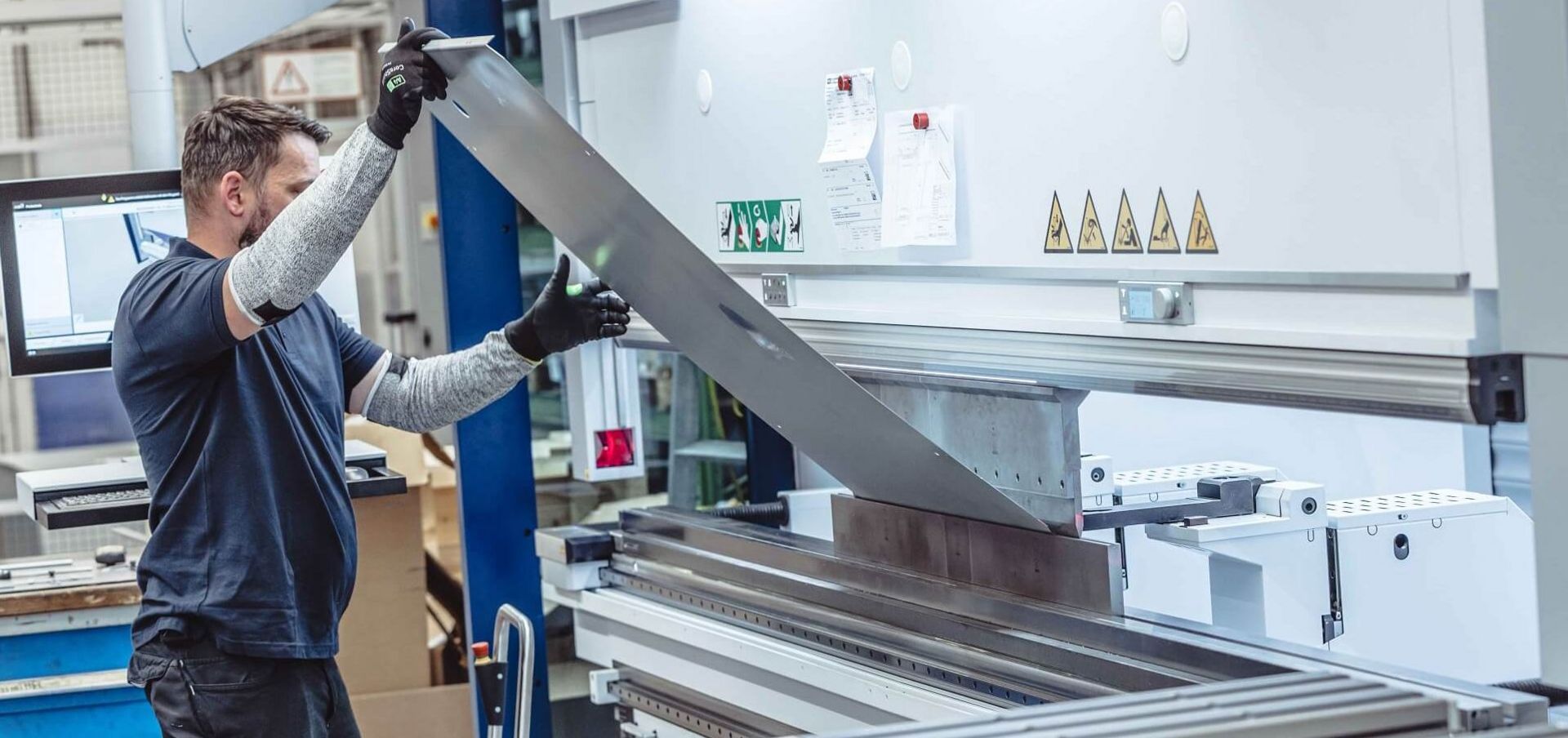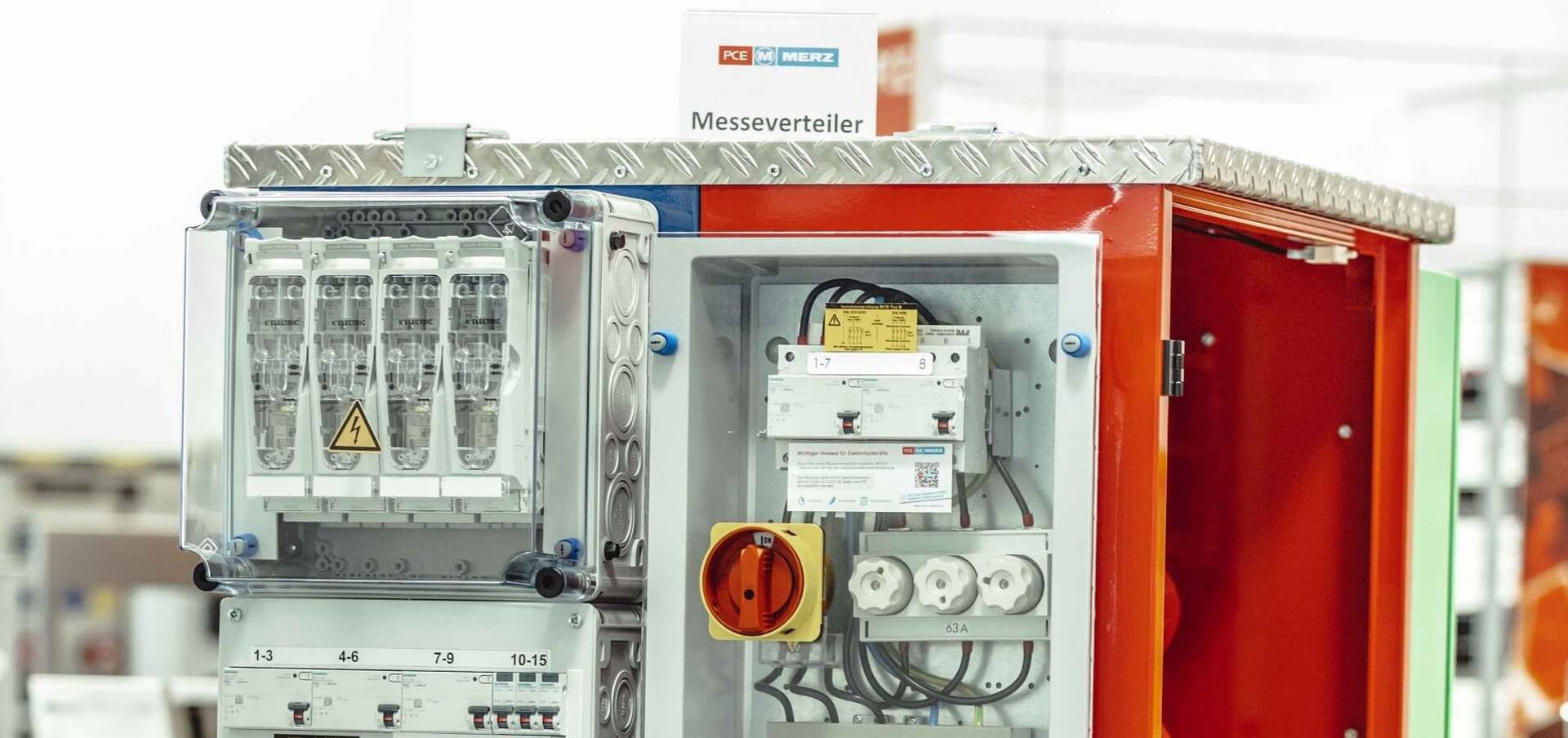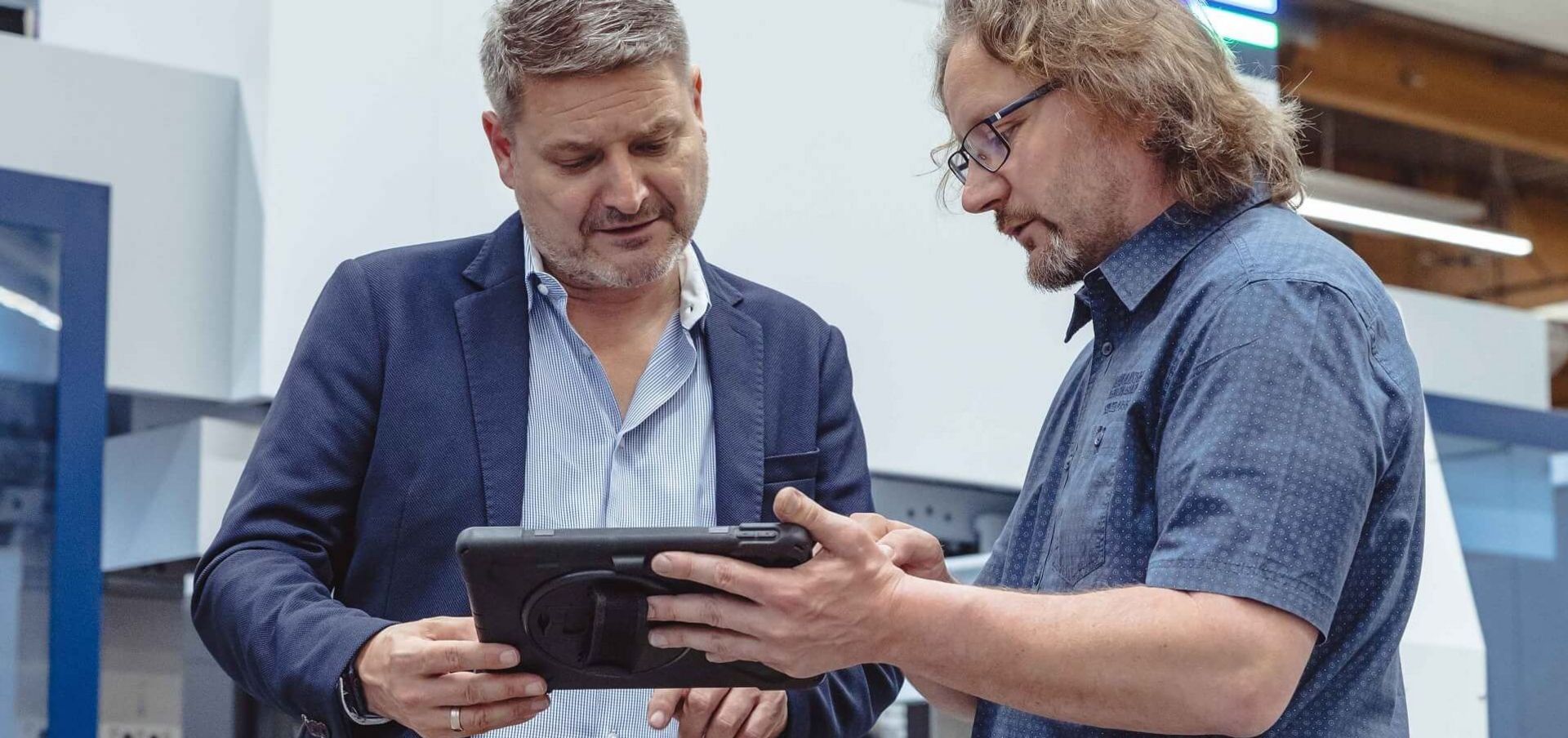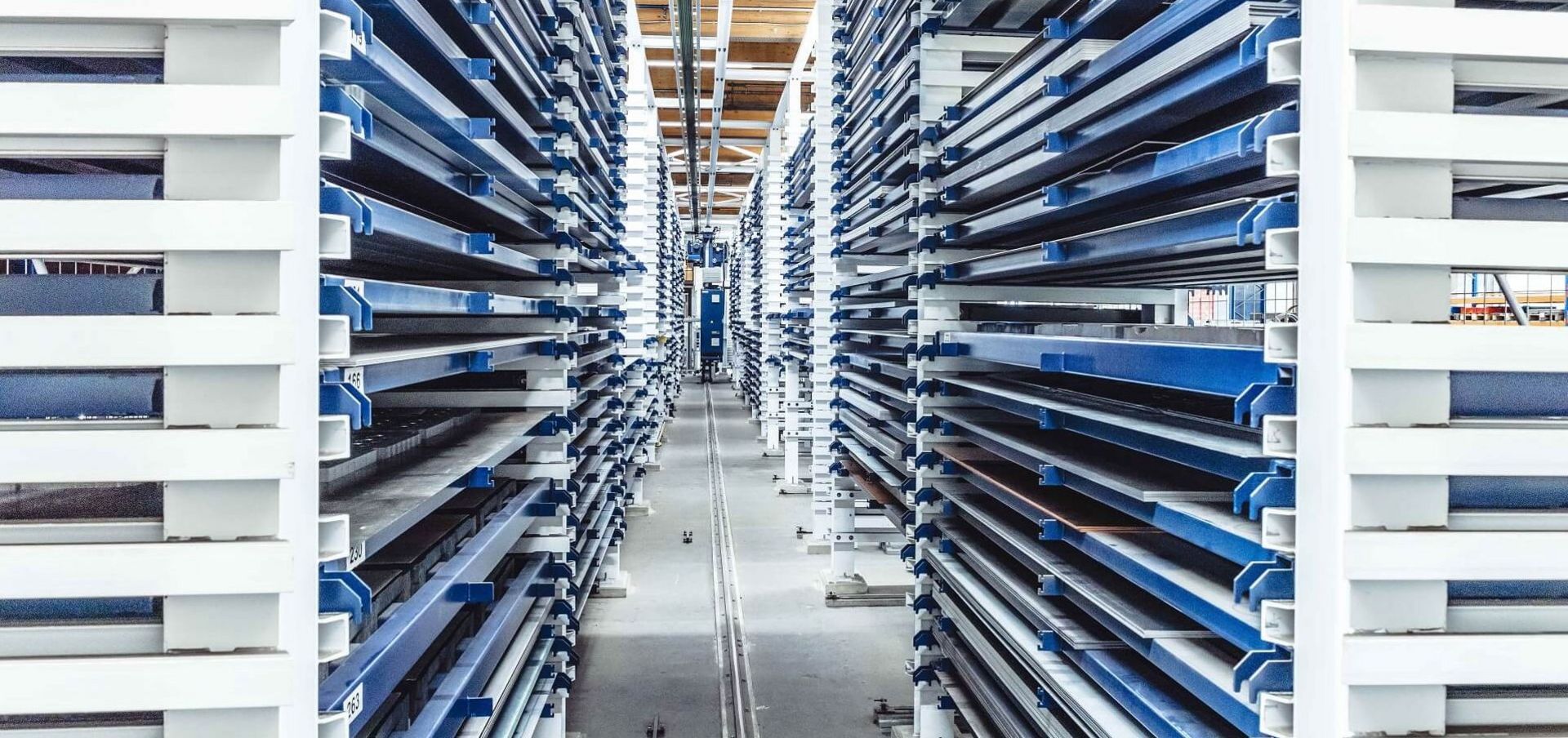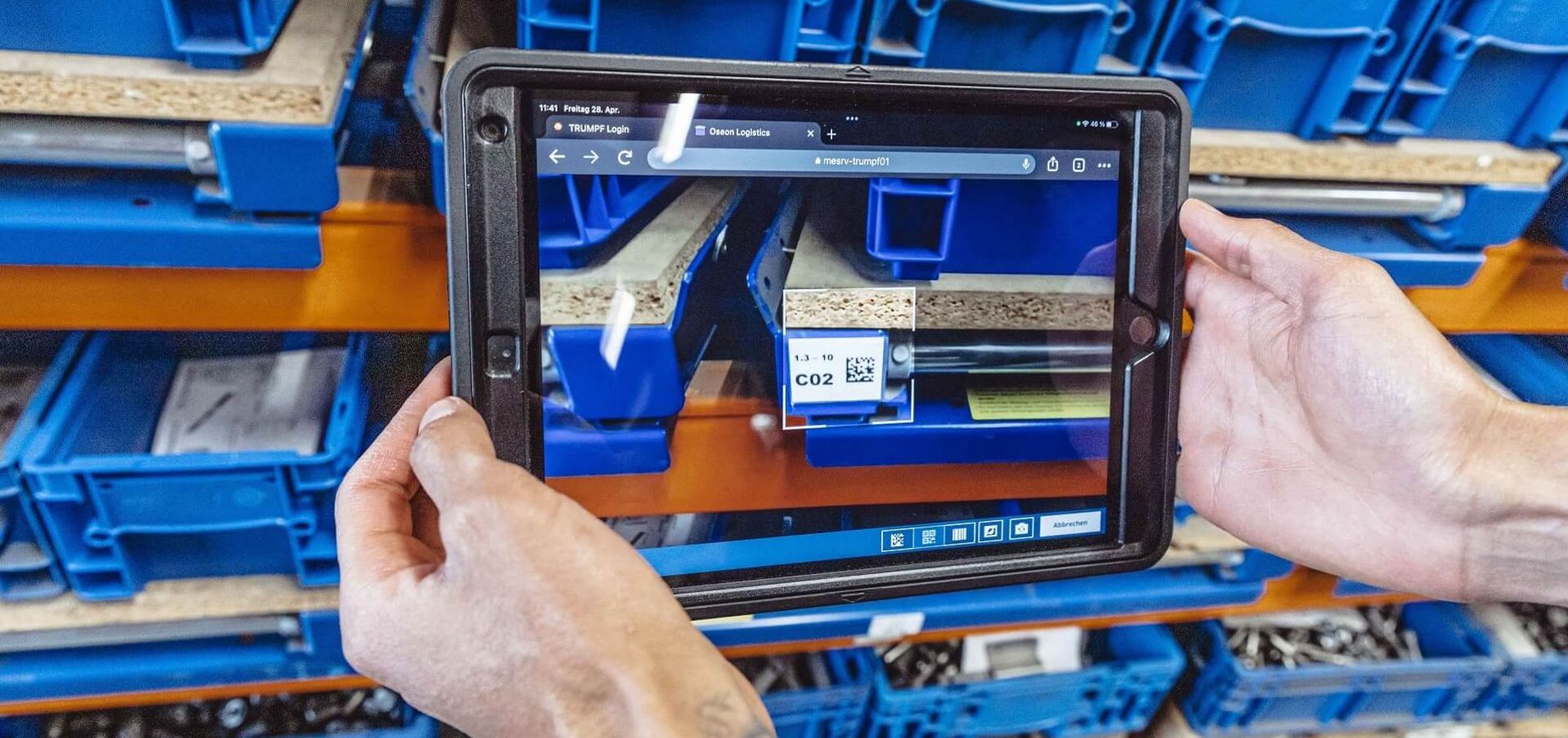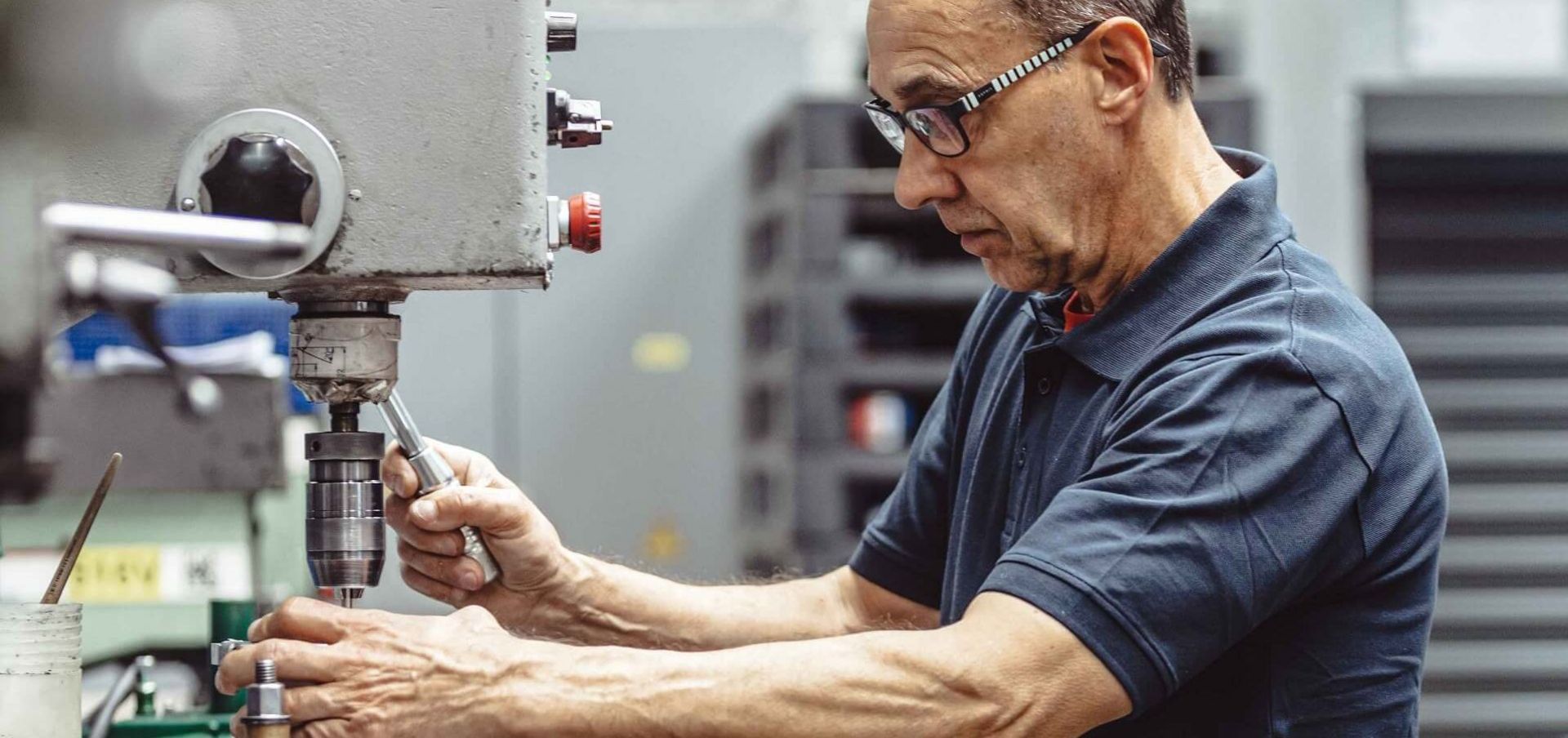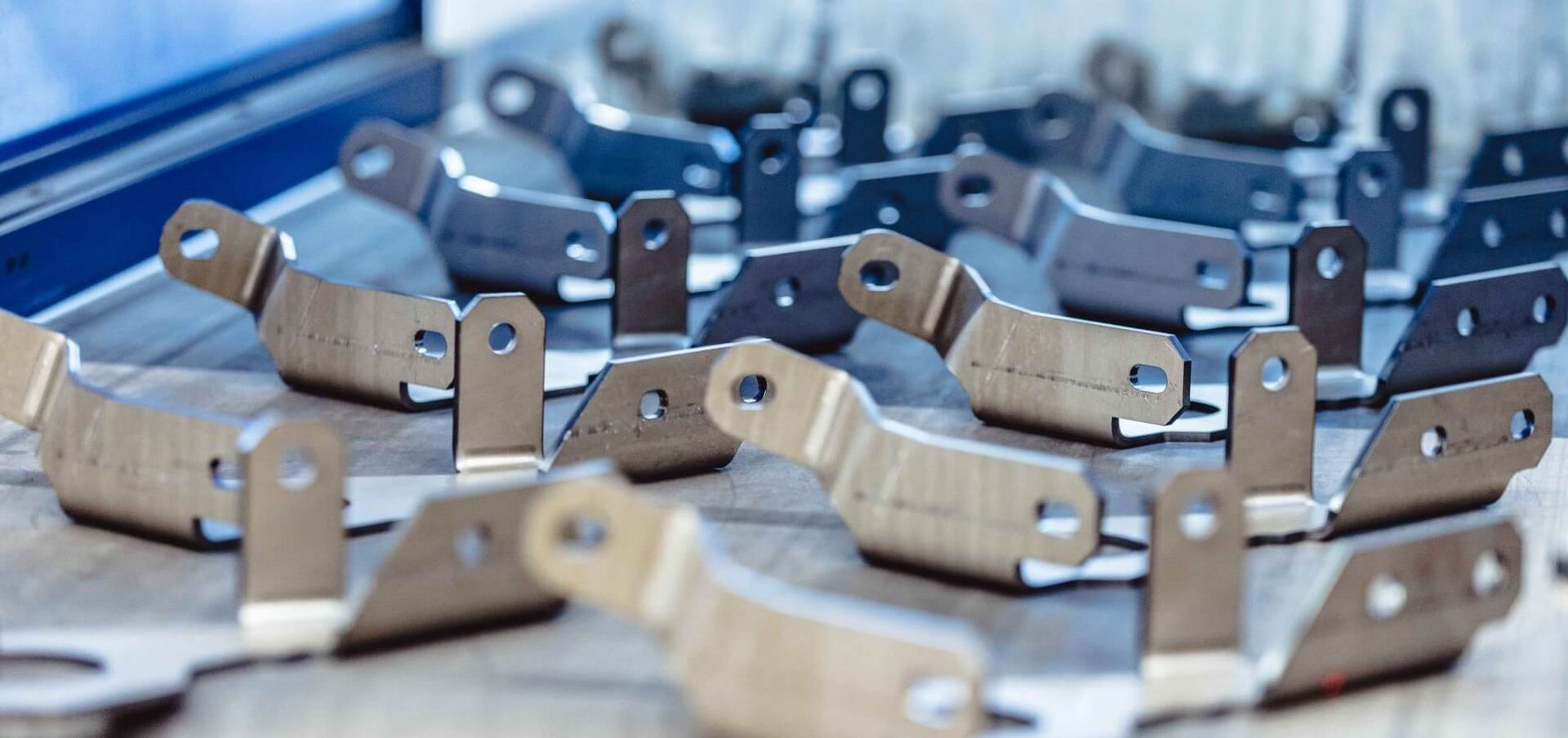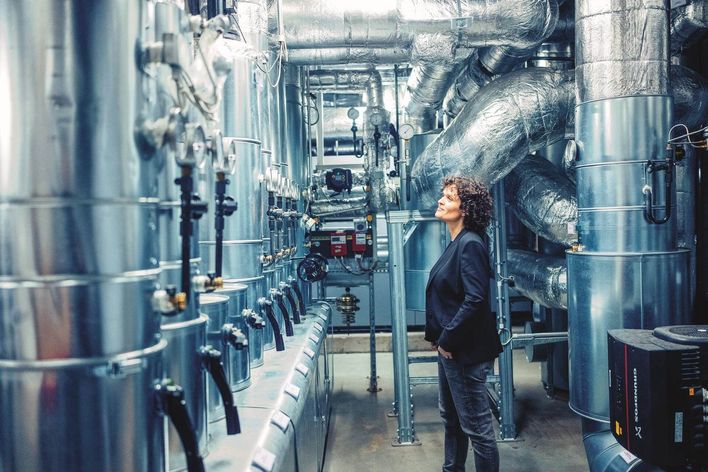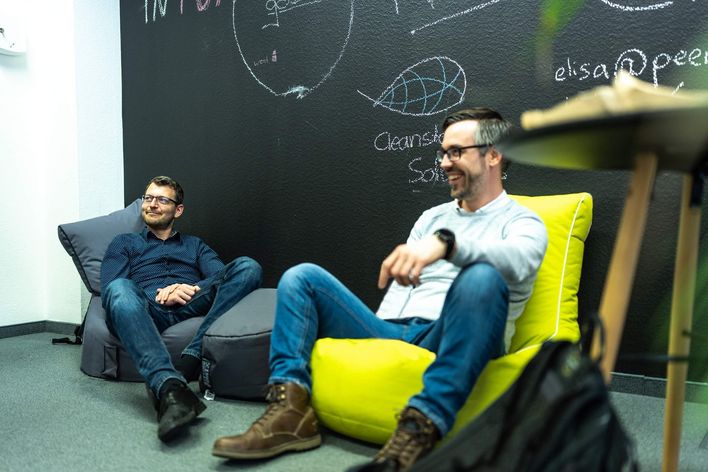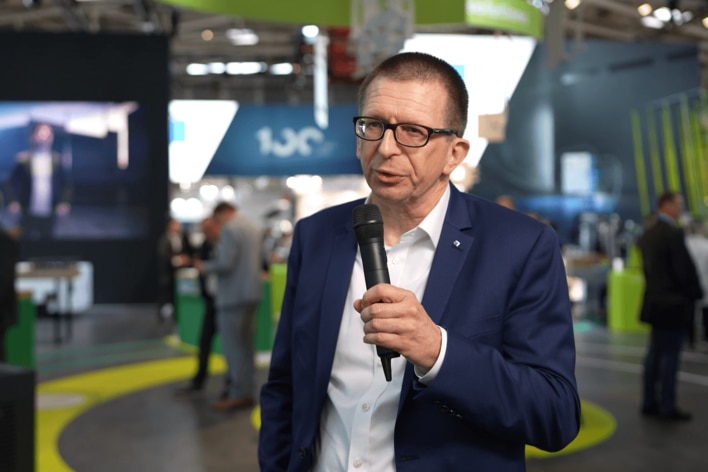Many people advocate a phased approach when it comes to automating and digitalizing production processes. Tim Ungerer sees things differently. The Head of Product Management Sheet Metal Technology at MERZ GmbH is a man who believes in getting things done, and once a plan is in place he remains committed to it, even if it requires enduring some discomfort in the process. "Anyone who claims that introducing a new production control system is a straightforward task is not being truthful," he remarks. "It involves changing every single process, and we had to completely rethink everything. But after six months of gritting our teeth, the rate of success grew exponentially with each passing week. We now process three times more sheet metal daily than we did before, with just half the number of people. This allows our employees to concentrate on other tasks as well."
15 tonnes of sheet metal in 3-shift operation
MERZ GmbH, headquartered in Gaildorf, Baden-Württemberg, is a leading manufacturer of mobile power distribution, testing, connection and supply technology as well as switchgear. Since 2005, MERZ has been part of the global PCE Group, which is based in Austria. Together with its two subsidiaries Merz Schaltgeräte GmbH & Co KG and Moser Systemelektrik GmbH, MERZ has established a strong market presence with its extensive product portfolio. MERZ attains its high vertical range of manufacture primarily through its in-house sheet metal processing operation, which includes production of power distributor housings. Tim Ungerer is responsible for some 110 employees who process between 10 and 15 tonnes of thin sheet every day across three shifts. Dealing with a wide range of parts, with quantities varying from 1 to 1,000, and facing significant deadline pressures is part and parcel of his daily routine. His customers include not only colleagues from various departments within the company but also external customers for whom MERZ operates as a job shop. "To manage this workload, everything in production has to run seamlessly, and until a few years ago, it didn't," Ungerer adds. "We were processing just three tonnes of sheet metal per day, and our operations lacked transparency," Ungerer emphasizes. "Comprehensive automation and digitization measures were absolutely essential to ensure our sheet metal production was ready for the future."
Automation brings order
Ungerer sought assistance from TRUMPF to plan the extensive project. "They examined my entire production line with focused expertise and presented me with an excellent concept," he elaborates. This plan, coupled with Ungerer's dogged determination, finally also convinced the PCE shareholders. In 2017, MERZ initially invested in several automated laser and punching combination machines from TRUMPF. "We had no automation to speak of until then," says Ungerer. "I had three forklift drivers and three or four employees who picked up finished parts from the laser machines. It wasn't necessarily chaotic, but controlled processes just look different." The new machines are positioned in the production hall in such a way that they can be easily connected to a new, fully automated STOPA store with 400 spaces. This arrived twelve months later, and won Ungerer over from day one: "The high bay storage racks were a milestone. It makes us much more flexible. In the past, when an employee was absent, it presented a significant organizational challenge. Today, the machines are supplied autonomously with materials. As a result, our production has experienced a significant acceleration, and the processes have become much smoother."
New software requires nerves of steel
Tim Ungerer would like to see the same for all other processes in his production facility. By implementing TRUMPF's Oseon production control software, he aims to establish well-organized material flows and efficient, transparent processes on the shop floor. Up until now, MERZ has been using an outdated ERP system. Ungerer acknowledges that the production process was mostly like a black box for him, saying, "It wasn't easy to track the status and location of orders, or the whereabouts of semi-finished parts. We also couldn't accurately determine the duration of a work step, such as machine setup, for instance. Overall, I found the entire situation was highly dissatisfying."
This is why Ungerer is not taking any half-measures with Oseon either. He aims to create a seamless flow of material and information along the entire production chain. As a result, he has chosen a comprehensive package, covering everything from work preparation and production planning to the automated programming of jobs using TruTops Boost software and digital notifications when a job is completed. Each workstation is equipped with tablets, and every step in the process is documented in an app from initiation to completion. "Mobile access to all information makes everyday life easier for all employees. "Being able to check the status of an order and its estimated completion time instantly with a simple button press is a dream come true for any production manager," Ungerer notes happily.
While getting everything to run smoothly may have caused a few gray hairs for him and his staff, Ungerer reflects that, in hindsight, it was definitely worth the effort. The processes have become more transparent, and Oseon has enabled him to identify production bottlenecks that had been impeding efficiency. For us, this was particularly evident in the bending process, for example. With Oseon, we have the capability to manage what are known as "bending pools." All bending jobs are consolidated in the bending pool, enabling me to allocate order queues to each bending machine over an extended period of several weeks. This makes the planning of this work step much more predictable," Ungerer expresses. He is also impressed at the wealth of information provided by Oseon: "I have constant visibility into machine availability and receive notifications about any machine downtimes. This helps me to continuously optimize production."
Downtime? No chance!
In the meantime, a sense of calm has been restored to sheet metal processing operations at MERZ. "I still have a parking spot reserved for TRUMPF engineers outside my production hall, but at this point, my employees have adapted to the new processes and programs quite effectively. They are delighted that many tasks have become more straightforward and everything is now more manageable," Ungerer says with a smile. The upheaval involved in implementing Oseon hasn't discouraged him in the least – quite the opposite. "I'm aware that TRUMPF usually implements projects like this in small steps. "In those cases, the transition will definitely go more smoothly," Ungerer acknowledges, continuing with a wink. "But we are hardcore users. We wanted the full package in a very tight time frame, and this was also a novel experience for TRUMPF."

